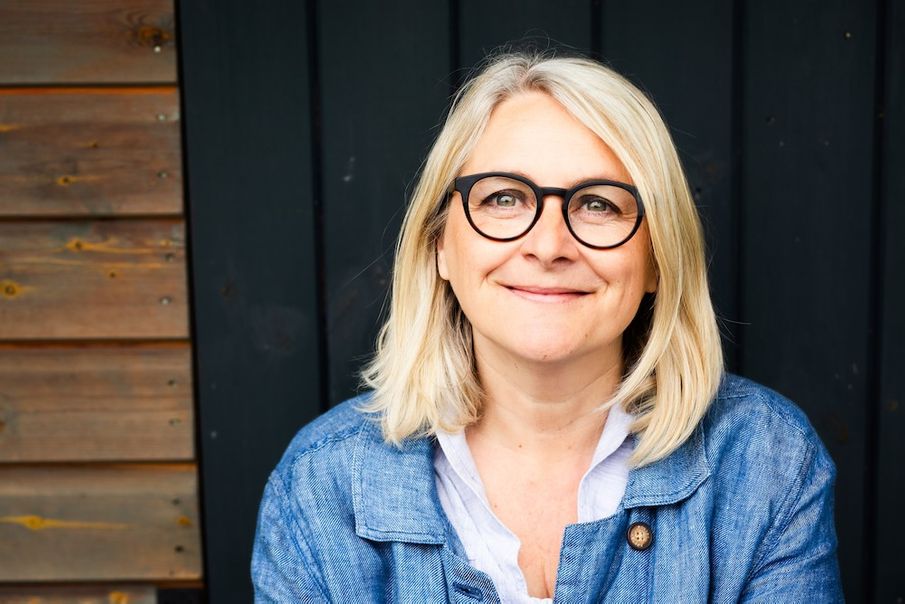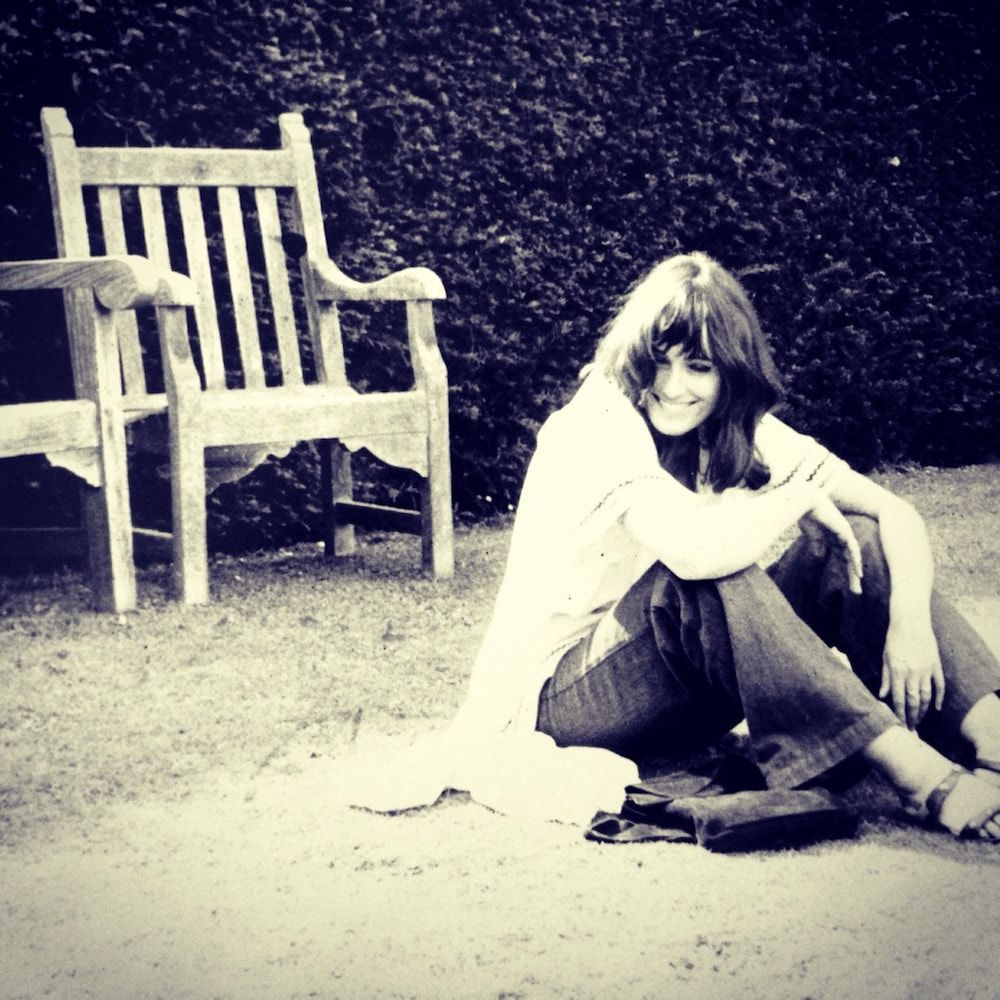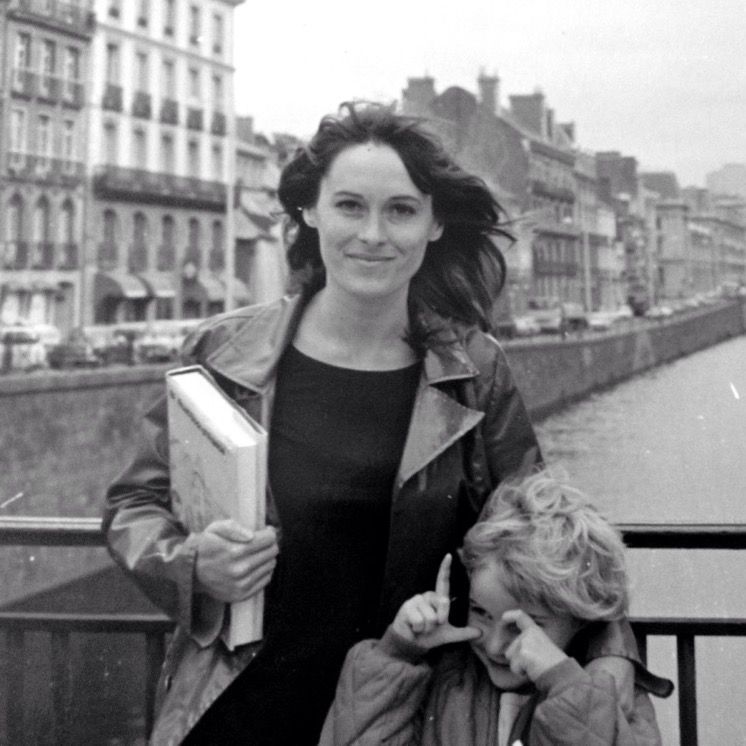Emma Kennedy, author and Celebrity Masterchef winner, opens up to Happiful for the first time about her late mum Brenda’s battle with mental illness, and why she still feels haunted by the things left unsaid...
Lawyer turned actress and writer, Emma Kennedy was holed up in a central London writing room, when she received the call that shattered her world.
“It was my dad, telling me to come home, and it was really obvious that this was it,” she says, recalling the day in May, 2014, when her mum, Brenda, who had endured a decade-long battle with breast cancer, started losing her fight with the disease.
“I was destroyed when I saw the state she was in; I collapsed,” she says. “From the moment I clapped eyes on her, I don’t think I stopped crying until the moment she died, and then I cried for another five days afterwards. I cried for 11 days without stopping. It was like my body was in control of me.”
Following Brenda’s death aged 71, Emma was really taken aback by the intensity of her grief.
“Everyone is going to die, but there’s something really shocking about being told by a member of the medical profession: ‘This is the time frame’,” she explains. “Even watching her slow decline, and getting to the point where someone you love is suffering, I was absolutely sideswiped by the extent of the grief I felt.”
Brenda inspired Emma's humour
Ask Emma to describe her mum, and she spontaneously selects adjectives like “brilliant, vivacious, fantastic and intelligent”. She describes Brenda warmly as “one of a kind” and it’s little wonder why she and dad Tony have “loomed large” in Emma’s work, immortalised in her best-selling 2009 novel The Tent, The Bucket and Me, and her BBC TV series, The Kennedys, based on her childhood growing up on a council estate in 1970s Stevenage. Brenda – whose own mum died of breast cancer at 49 – passed away three weeks before Emma filmed the pilot.
“That was very hard,” sighs Emma. “[During] one of our last conversations, she wanted me to read her the script. She stopped me at one point – she could barely speak – and said: ‘You’re going to have to change that name, your father still sees her in Sainsbury’s.’”
Emma guffaws at the memory. Brenda inspired her humour, and injected her with a strong work ethic. She is, says Emma, “the reason that I do what I do today, and I will never, ever not be grateful for that.”
But there’s a but. By her own admission, Emma has only ever injected the “quirky, brilliant” experiences into her work, but today she has decided to unveil a secret about her mum.
“Mum was one of a kind, but she was also the most complicated person I have ever known, and there was no doubt that she had an undiagnosed mental illness,” reveals Emma.
“I think she had paranoid personality disorder. When I was born, she had postpartum psychosis – it was 1967, you didn’t go to the doctor, and it wasn’t talked about. I think she fundamentally changed at that moment.”
Only child Emma admits that amidst the abundance of amazing memories from her childhood, there were some very “dark” times.
“When she was good she was very, very good, but when she was bad she was horrid,” explains Emma. “She had the capacity to go, in seconds, from absolutely normal to the worst human being you’d ever encountered.
She was like someone you’d never met before. She had this brilliance, but she also had the darkness
“When you’re a child, you don’t know how to cope, especially with something you don’t understand. I loved her, but I didn’t like her, for a long time.”
Another incident that troubles Emma happened years later, when her mother was first diagnosed with breast cancer, and told her consultant she had been given cancer by a CIA operative in a book shop in Cambridge.
“She really believed it, [and] what I find extraordinary about that moment [is that] no one said anything,” says Emma. “My mother refused to have chemotherapy the first time round, because she genuinely thought it was a ruse, rustled up between me, my dad and the hospital, to kill her.”
Although Emma and Tony finally persuaded Brenda to have some treatment, she elected not to have mastectomies – treatment that may have saved her life.
Emma admits she is also haunted by the fact that she and her dad never spoke about Brenda’s mental health until she died.
“We were such an open family, but there was this one great big elephant in the room that was never discussed.”
Emma’s reasons were, she reveals, two-fold and complex. Even five years ago, mental health wasn’t as commonly discussed. Mostly, though, Emma was petrified of how her mother would react to being confronted about it.
“If I had done that, she wouldn’t have accepted it. She’d have pushed me away, and I probably wouldn’t have had a relationship with her at all in the last years of her life. It’s tricky,” sighs Emma.
“I wish I’d had the strength to take her to a doctor and to say ‘please can you help her’. I didn’t. I am so consumed with sadness now that no one ever asked her, ‘What is it that kicks this off? What can we do to help you?’”
Family photo of Emma with her mum, Brenda
This deep anguish for what she never vocalised galvanised the idea for Emma’s latest book, The Things We Left Unsaid, which sees lead character Rachel mourning her father, then losing her mother. Rachel discovers she never properly knew the people who raised her, and one moving line reads: ‘We spend so much time with our parents, it’s a shame we don’t get to know them.’
It’s a theme that will make Emma’s readers ponder the depth of their relationship with their own parents. What were they like in their youth? What were their dreams, secrets and mistakes?
Conversation naturally turns to Emma’s father Tony, 79, who went into “hibernation” after Brenda’s death, to process losing his wife of 47 years.
“He’d been so devoted to her, and she was the boss, [so] he went through a period of needing to work out who he was and how he wanted things to be,” says Emma.
How is he now?
“He’s doing brilliantly,” beams Emma. “He’s got a girlfriend, he’s moved house, he goes to football every Saturday. He is an absolutely amazing man. I’m in awe of him. He stood by [mum] through thick and thin. He completely loved her, but he had a really difficult time.”
Emma’s own four-year marriage to talent agent Georgie Gibbon seems equally solid. Before proposing, Georgie sought permission from Emma’s mum, two months before she died.
“My mother looked at her and said: ‘Well, I hope she says yes.’ She was an absolute terror!” says Emma, crumpling into hysterics. “She was like someone you’d never met before, an absolute one off. She had this brilliance, but she also had the darkness.”
In one poignant moment of Emma’s book, Rachel asks whether losing a parent ever gets easier. What would be Emma’s response?
“I can’t remember who said it, but it’s so true,” she replies. “Grief is like a massive ball inside a box. At the start, the ball is completely filling the box and as the years go by, the ball gets a little smaller, but is still bouncing around. Give into it. Roll with it as you would a wave, and be as kind to yourself as possible, for as long as it takes.”
Emma's book, 'The Things We Left Unsaid' (Century, £12.99), is available now
Follow Emma on Twitter @EmmaKennedy




Comments